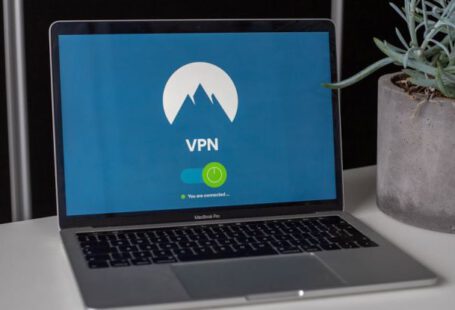In today’s digital age, our personal data is more vulnerable than ever before. With the increasing number of cyber threats and data breaches, it is essential to take proactive measures to keep our personal information secure online. From social media accounts to online banking, our data is scattered across the internet, making it crucial to implement robust security practices to safeguard our privacy. This article will provide you with valuable tips and strategies on how to keep your personal data secure online.
Beware of Phishing Scams
Phishing scams are one of the most common tactics used by cybercriminals to steal personal information. These fraudulent emails or messages are designed to trick individuals into providing sensitive data such as passwords, credit card numbers, or social security numbers. To protect yourself from phishing scams, always verify the source of the email or message before clicking on any links or attachments. Be cautious of emails that ask for personal information or urge you to act urgently. When in doubt, contact the company directly to confirm the authenticity of the communication.
Use Strong and Unique Passwords
Using strong and unique passwords is a fundamental step in securing your personal data online. Avoid using easily guessable passwords such as “123456” or “password.” Instead, create complex passwords that include a mix of letters, numbers, and special characters. Additionally, use different passwords for each of your online accounts to prevent a data breach in one account from compromising all your accounts.
Enable Two-Factor Authentication
Two-factor authentication adds an extra layer of security to your online accounts by requiring a second form of verification, such as a text message code or a biometric scan. Enable two-factor authentication whenever possible to enhance the security of your accounts, especially for sensitive information like financial or healthcare data. This additional step can significantly reduce the risk of unauthorized access to your personal data.
Regularly Update Your Software
Keeping your software up to date is crucial for protecting your personal data from security vulnerabilities. Software updates often include patches for known vulnerabilities that cybercriminals could exploit to access your information. Enable automatic updates for your operating system, web browser, and antivirus software to ensure that you are always protected against the latest threats.
Be Mindful of Sharing Personal Information
Be cautious when sharing personal information online, especially on social media platforms. Avoid posting sensitive details such as your address, phone number, or birthdate publicly. Cybercriminals can use this information for identity theft or targeted attacks. Review your privacy settings on social media and adjust them to limit the visibility of your personal data to only trusted individuals.
Secure Your Wi-Fi Network
Securing your home Wi-Fi network is essential for protecting your personal data from unauthorized access. Change the default password on your router to a strong, unique password and enable encryption to encrypt the data transmitted over your network. Additionally, consider hiding your Wi-Fi network’s SSID to make it less visible to potential hackers.
Regularly Monitor Your Accounts
Frequently monitor your online accounts for any unusual activity, such as unrecognized transactions or login attempts. Set up alerts for suspicious activity and review your account statements regularly to detect any unauthorized charges. If you notice any signs of a security breach, report it to the respective service provider immediately.
Conclusion: Stay Vigilant and Proactive
In conclusion, keeping your personal data secure online requires vigilance and proactive measures. By following the tips outlined in this article, you can better protect your sensitive information from cyber threats and data breaches. Remember to stay informed about the latest security best practices and technologies to adapt to the evolving landscape of online security threats. Your personal data is valuable, so take the necessary steps to safeguard it and minimize the risk of falling victim to cybercrime.





